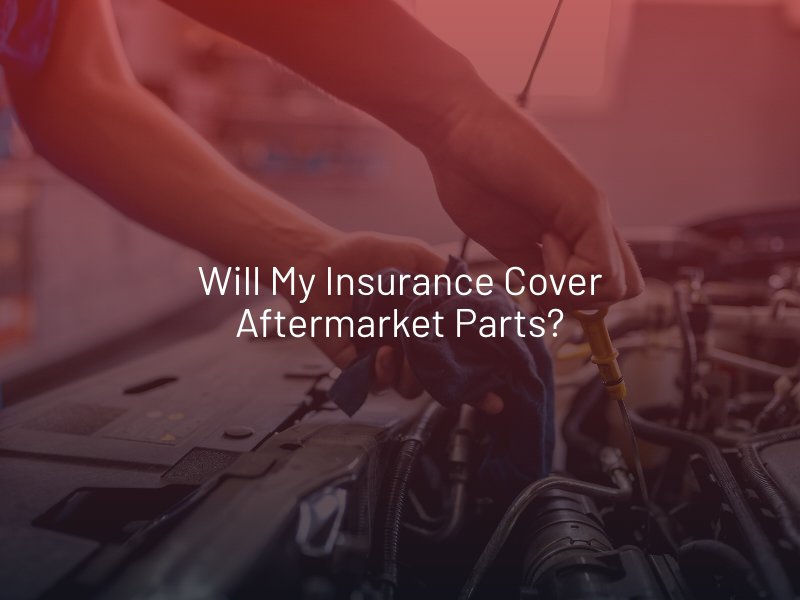Will My Insurance Cover Aftermarket Parts?
After a car accident, using parts from the Original Equipment Manufacturer (OEM) to repair your vehicle is ideal. However, it is not always possible, and sometimes aftermarket parts are necessary. While some insurance policies cover aftermarket parts, others contain specific verbiage that specifies only partial coverage or none.

Check Your Insurance Policy
Before approving repairs to your vehicle following a collision, double-check your auto insurance policy for how parts are handled. If you fail to follow your policy’s terms, you can end up paying out of pocket for parts. Aftermarket parts are often lower in cost, but policies can stipulate that only OEM parts are given coverage. Alternatively, some policies will only pay for repairs to your vehicle if aftermarket parts are used.
What are Aftermarket Parts?
Aftermarket parts can be used on a vehicle, but they do not come from its original manufacturer. In other words, they are a different brand, but they typically do not change the appearance of the car and are often just as safe. Additionally, they are more cost-effective, which is why some auto insurance companies prefer replacing certain damaged parts with aftermarket ones.
Aftermarket Parts and Vehicle Modifications
Some vehicle owners use aftermarket parts to modify their cars to improve horsepower, fuel efficiency, performance, or cosmetics (e.g., wheels or tires). When a vehicle is intentionally changed from the state it was in when the manufacturer sold it, the vehicle has changed from what the insurance company believes it is insuring. Therefore, modifications can change what an insurance company is willing to cover. If you get into an accident, you may be surprised to learn what changes are excluded from coverage under your policy.
Can I Add Insurance Coverage for Aftermarket Parts?
Auto insurance can be purchased for aftermarket parts, but it is expensive. Your insurance company may have it available as supplemental coverage to your collision or comprehensive insurance. Alternatively, your insurer may not offer it, but there are insurance providers that you can search for that insure unique vehicles.
Who Pays for Vehicle Damage in Nevada?
Nevada uses an at-fault system, which means the party responsible for causing the accident must pay for damages. Therefore, when another party is to blame, you have the right to file a claim directly with their auto insurance company to pay for your vehicle’s repairs. However, their insurer must only pay for the repairs up to their policyholder’s limits.
Therefore, if the at-fault party only has the state’s minimum requirement for property damage liability insurance ($20,000), it may not be enough to cover your vehicle’s damage. At that point, your only options are to sue the at-fault party or use your auto insurance if you have collision or comprehensive coverage. Though, the at-fault party may not have the financial means to personally pay for the damage if you sue.
Speak to Our Experienced Lawyers
If you have questions about insurance coverage for aftermarket parts after a collision, contact Harris & Harris Injury Lawyers. Our Las Vegas auto accident lawyers can arrange a free consultation to discuss your rights.